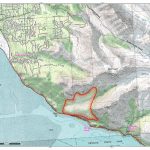State to tackle highway flood damage
The State Department of Transportation opened bids Friday for a project that will help protect the Glenn Highway from Matanuska River flooding.
Russian and American officials sign wildlife management agreement
Cooperation across the Bering Strait was recently strengthened when the U.S. and Russia signed a joint wildlife agreement. Download Audio
Animal traps in Southeast and Tok no longer need identification
Alaska’s Board of Game voted to remove a requirement that animal traps have some kind of identification in Southeast Alaska and the Tok region. The Board met on statewide proposals to change hunting and trapping regulations last week in Fairbanks.
The challenges of crab leg lunch
The Norton Sound Commercial Crab Fishery closed last week, recording more than 41 thousand pounds of red king crab. That pales in comparison to last year’s record-breaking catch. But it was enough for Nome’s Pingo Bakery Seafood House to host its annual crab leg lunch during Iditarod.
Pavlof still rumbling, but no more ash clouds
Researchers say Pavlof volcano is still rumbling and exploding but is no longer sending up massive ash clouds. Download Audio
New record low sea ice extent forces Navy camp evacuation
A camp constructed by the U.S. Navy on a sea ice floe in the Arctic was evacuated last week. The camp’s early closure coincided with a new record low sea ice extent in the Arctic. Download Audio
UAF mountaineering class recovers from avalanche
Members of a University of Alaska Fairbanks mountaineering class are recovering after being hit by an avalanche in the eastern Alaska Range. The incident has raised questions about the university taking students into the mountains.
History of Chugach State Park
KSKA: Thursday, April 14, at 2pm.
When you fly into Anchorage, what do you really notice? It's not the buildings or the roads, it's the mountains that take your breath away. It’s a gift, but it didn’t have to be that way. 50 years ago, the land we now call Chugach State Park was open for development. The reason we have a park now is because citizens got together and were bold enough to demand one. We’ll be talking about the history of the park and how it came into existence.
DOWNLOAD AUDIO
Savoonga harvests its second whale of the season
A whaling crew from Savoonga landed its second bowhead of the season this week. The St. Lawrence Island community has been working non-stop to haul the whale out of the icy waters, harvest its meat, and distribute it around the village. Download Audio
Warm water Blob may be sending salmon forecasts awry
Fisheries researchers say the appearance of a warm water anomaly in the northeast Pacific Ocean likely added a new wrinkle into recent predictions of Alaska salmon runs that are used by commercial fishing industry for the upcoming season’s planning. Because of the variability of West Coast salmon populations, a simple cause and effect may be impossible to pin down.
Zombie crabs: Barnacle infects king crab populations
Zombies are real. They’re walking around on the bottom of Alaska’s ocean, mindlessly incubating the next generation of creatures that will, in turn, create even more zombies.
Bristol Bay Native Corporation plans to acquire Katmailand
The Bristol Bay Native Corporation announced plans to acquire Katmailand, Inc., a long running sport fishing and bear viewing operation in and around Katmai National Park. Download Audio
How safe are your clothes? Speaker talks about everyday toxics, mountaineering
Well-known chemist and mountaineer Arlene Blum to speak in Anchorage on Tuesday. Download Audio
Rain dampening McHugh Fire, officials say prospects are good
As of Wednesday evening, the McHugh Fire was estimated at 842 acres, and 250 crew members from Alaska and the Lower 48 were working on stopping its growth. The community gathered to get more information. Listen now
Petersburg composting business reaches for grant to grow
A Petersburg project is one of the finalists in Sealaska’s Path to Prosperity contest. For the second year, Petersburg’s tribe is in the running for $40,000 to grow the business of making compost.
State Department to hear transboundary mine concerns
U.S. State Department officials are in Southeast Alaska this week to talk about transboundary mines. The Environmental Protection Agency also has sent representatives. Listen now
What killed St. Paul’s woolly mammoths?
What killed the woolly mammoths on St. Paul Island? Thirst. For the first time, scientists have pinpointed the date — 5,600 years ago — and a likely cause of extinction. They believe the environmental changes that killed the animals mirror today’s climate changes. Listen now
Gone glacier: fashion magazine depicts Mendenhall melt too soon
The magazine Marie Claire sent a team of journalists and fashionistas to the Mendenhall Glacier in the summer. The story that appeared in its September issue is called On Thin Ice: Can the Fashion Industry Help Save the Planet? But as first reported in the Juneau Empire, the magazine got a couple of key things wrong. Listen now
Alaskans protest North Dakota pipeline by paddling in solidarity
Members of the One People Canoe Society from Juneau paddled in unison today down the Missouri River in North Dakota. The trip is a show of solidarity with the Standing Rock Sioux who are protesting the Dakota Access Pipeline Project. A federal court is expected to rule on whether pipeline construction goes forward tomorrow.
Oil and subsistence in the warming Arctic: A conversation with Tom Kizzia
In the most recent issue of The New Yorker, Alaska writer and longtime former ADN reporter Tom Kizzia looks back at the debate over offshore drilling in North Slope communities. Kizzia visited Point Hope to report on how climate change is affecting the region’s twin pillars: oil development and subsistence hunting.




















